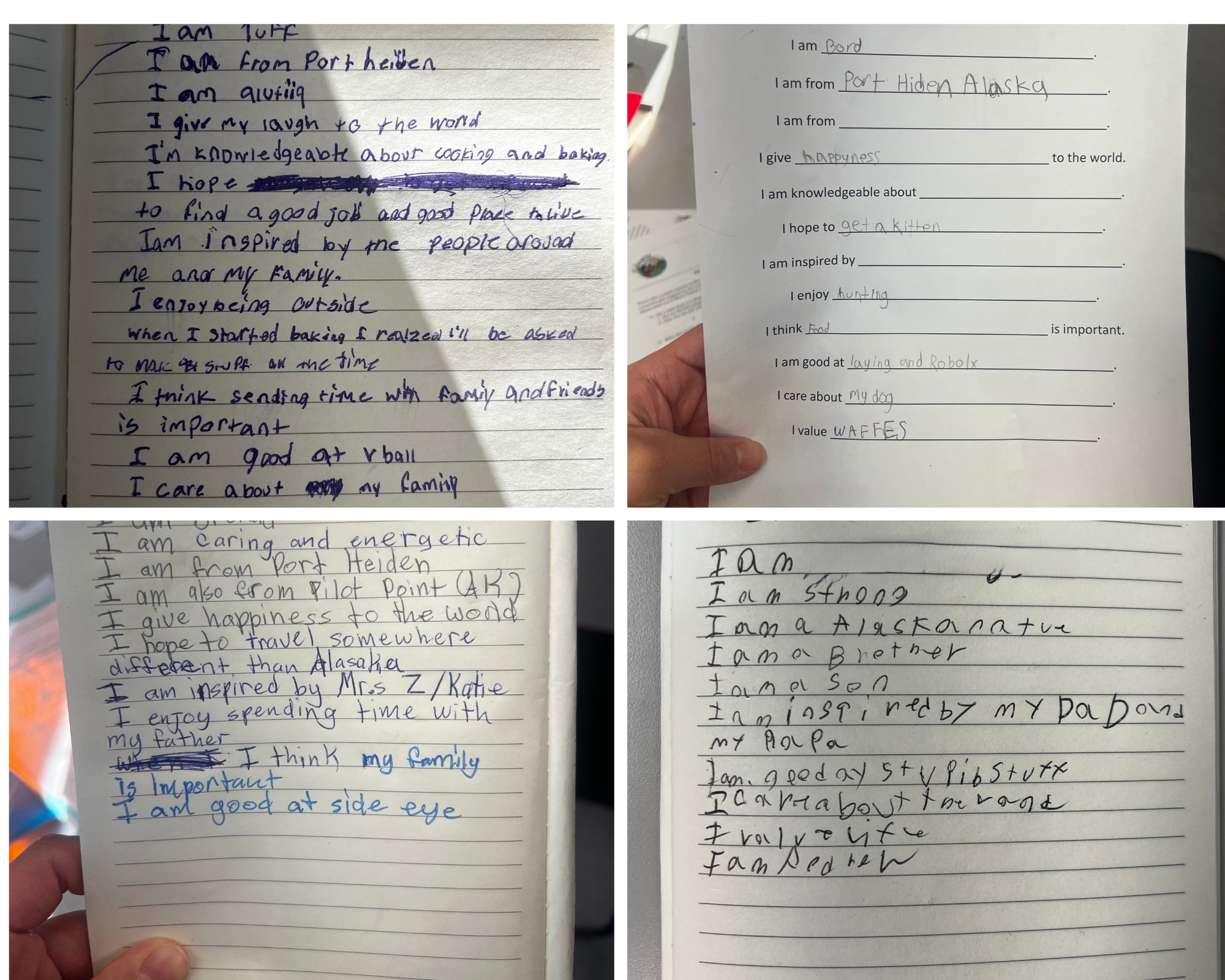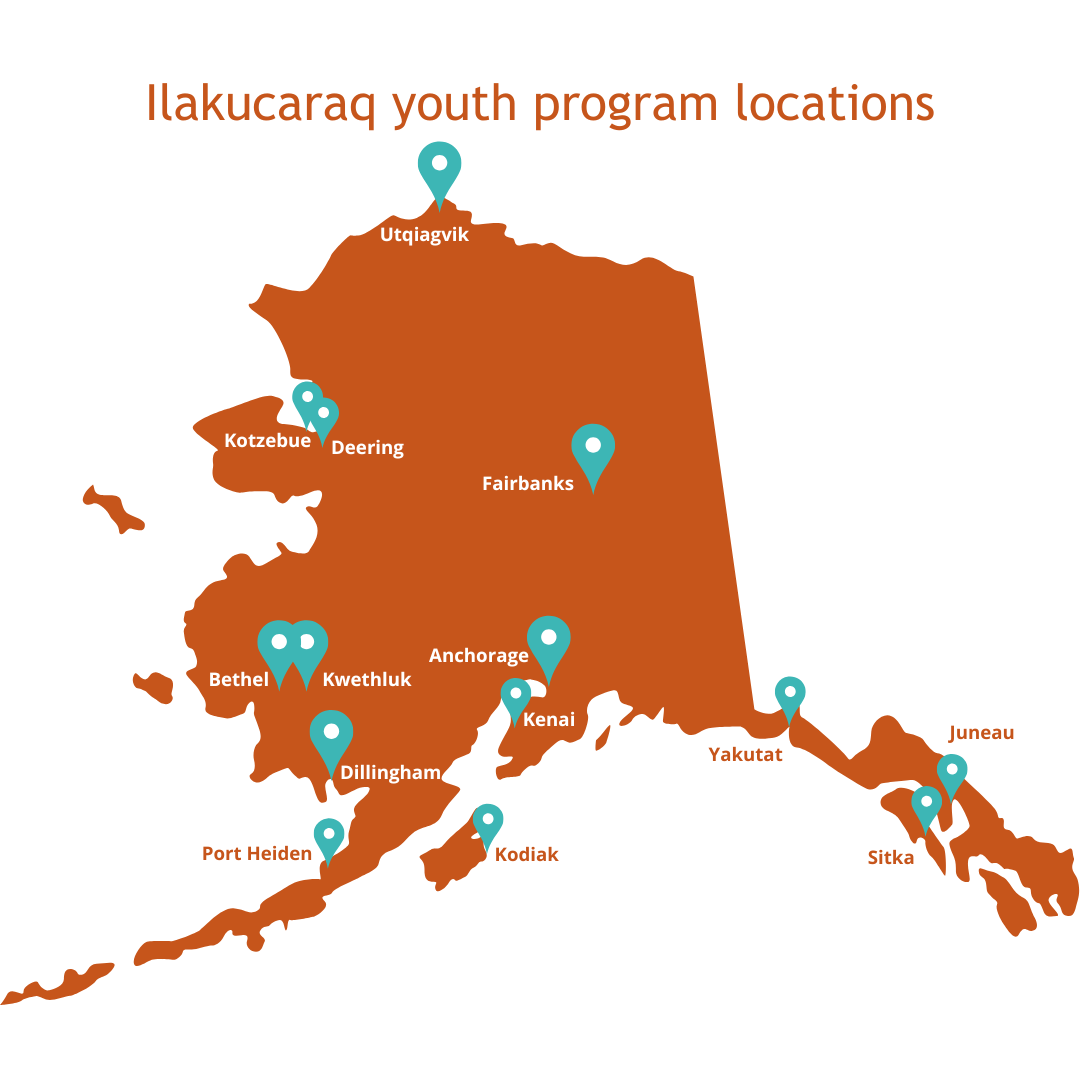
Copies of student "I Am" poems Molissa Udevitz
Amanda Dale • December 19, 2024
Students who know who they are and feel positively about their identities are more likely to graduate from high school, succeed in postsecondary education and have better experiences navigating life after high school. This kind of identity-building is a critical and rarely addressed need in postsecondary preparation. This is why the Forum’s youth programs, including the Ilakucaraq Program that ran from 2021-2024, spend time focusing on these big questions, to help students build the foundations that will support them as young adults. Read on for an example activity from the Forum’s new Ilakucaraq Activity Guides that, when done with intentional framing and lead-up, help students build and sustain a positive self-identity.

Copies of student "I Am" poems Molissa Udevitz
When Ilakucaraq students arrived in Anchorage for their weeklong immersion trip in June 2023, their first afternoon was reserved for important practical orientations: getting around the hotel, pedestrian safety in the city, a tour of host organization Alaska Native Heritage Center, and introductions to the staff and guests who would be leading and supporting them.
They also started to meet their fellow students, most for the first time. That evening, they sat down together in a circle and listened to staff read poems they had written about themselves in a specific structure, often known as “I Am” poems.
“We have staff read their poems in their own voice,” says Programs Design Manager Molissa Udevitz. “Students can then ask staff questions, so that it becomes a chance to build trust and build relationships. We want to model that we’re doing it, too, we’re being vulnerable, too.”

Map showing where students have written "I Am" poems with the Ilakucaraq program Molissa Udevitz
The activity is designed around the prompt, “What story do you want to tell about yourself?” The students decide what to include and how vulnerable they want to get. They talk about how these poems can change over time and that’s OK (to emphasize this, staff actively revise their poems while students are writing theirs for the first time).
Over the course of the immersion, students participated in many activities to help them build friendships, reflect on where they come from, and think about what matters to them. Writing “I Am” poems served as the culminating reflection. Several students were excited to share their entire poems with the group, and all students were asked to share at least one line.
“To me it just seems really empowering and uplifting for youth,” says Udevitz. “What they’re choosing to put on paper are typically things they’re proud of. They are prompted to share what feels important and something they want to communicate about themselves.”
- Student survey responses from Mt. Edgecumbe High School workshops
Between 2022-2024, more than 250 youth in grades 6-12 wrote “I Am” poems as a part of the Ilakucaraq program. The Forum didn’t invent this activity (a quick Google search shows hundreds of resources), but staff carefully integrate the activity into programming so that poems are introduced, modeled and explained, and so that students are supported in writing them.
“The first time we did this, we passed out an example and then asked students to write their own,” remembers Udevitz. “It wasn’t enough. To make it successful, there’s all this important pre-work we learned we need to do leading up to them writing their poem.”
Teachers who reviewed the new Ilakucaraq Curriculum, which includes an “I Am” poems lesson, noted in their reviews that this activity requires careful lead-up, honest reflections and sharing by the teacher, and an understanding of what relationships exist in the classroom before the activity. “It’s one activity among many,” says Udevitz, “and you work up to it. Building trust and relationships takes time.”
We want others to empower youth to share who they are and embrace the many aspects of their identities. You can use our new “Who Am I? Activity Guide” to help you do this with your family, students, or community in culturally affirming ways.
The Alaska Humanities Forum is a non-profit, non-partisan organization that designs and facilitates experiences to bridge distance and difference – programming that shares and preserves the stories of people and places across our vast state, and explores what it means to be Alaskan.
April 21, 2025 • Polly Carr
April 16, 2025 • Kameron Perez-Verdia
March 5, 2025 • Polly Carr